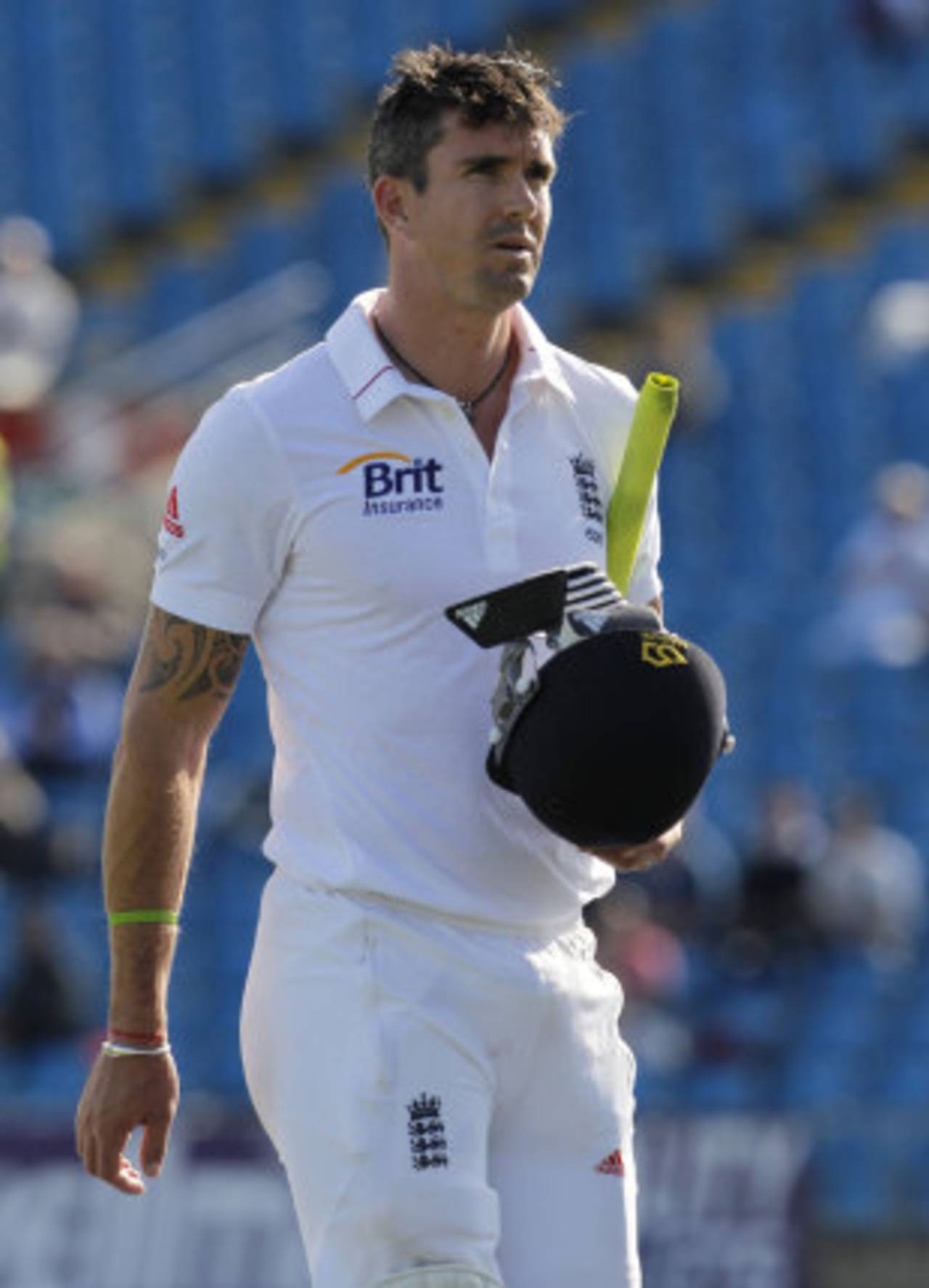Pietersen issue resolved but what about the schedule?
England's administrators got their star batsman to agree to play all three formats again, but the problem of the overloaded itinerary still remains
Ian Chappell
12-Aug-2012

Kevin Pietersen has a history of falling out with his team administrations • AFP
Kevin Pietersen's latest battle of wills with the English administrators is certainly not his first joust with officialdom, and players and administrators all over the world have been on opposite sides of the fence over many decades.
The reasons for these battles have varied over the years but mostly the results have been in the administrators' favour. Since the advent of the IPL, though, the odds have swung wildly in favour of the player. At least now when a player loses a battle with his local administration, he has the consolation of knowing he can still ply his trade - at a lucrative rate - in the IPL.
Unfortunately this solution often requires the player to retire from all other forms of the game and stick strictly to a diet of T20 tournaments. This was the situation Chris Gayle found himself in, but fortunately Pietersen's standoff with the ECB has now been resolved and his considerable talent and drawing power haven't been lost to the longer versions of the game.
It took a rare show of common sense to find a suitable solution for Gayle to resume playing for West Indies. Appropriately, it was the former West Indies physiotherapist Dennis Waight who first told me: "The problem with common sense is it's not all that common." In Pietersen's case it was more a case of a common cause rather than common sense that saw the player and the ECB work out a solution to their impasse.
Though it was the player who made the move towards reconciliation, it was hard to imagine England allowing Pietersen to walk away from Test cricket when there are two Ashes series looming in the space of 18 months. It has taken England too long to establish their superiority over Australia - after nearly two decades in the doldrums - to willingly sacrifice that position of strength over a principle.
Pietersen has a history of falling out with clubs he has played for: Natal, Nottinghamshire and Hampshire. He also has a tendency to speak first and think afterwards. Anyone in his position who publicly utters the words "It's not easy being me" needs a hastily arranged visit to an African refugee camp to regain perspective. On this occasion, though, Pietersen has come to his senses and agreed to a compromise.
For its part, the English hierarchy can be pretty inflexible both on and off the field. In the last couple of years that tendency has served the officials well and their side has won plenty of silverware to back their theories. Having now resolved the Pietersen issue, it might be a good time to adopt a slightly more flexible approach with the players.
The early examples of players and administrators locking horns were generally over money. From "the big six" in Australia in 1912, to World Series Cricket and then a series of rebel tours, the players' main complaint was over the size of the wage packet. The cricketers had little choice and the administrators could afford to say: "If you don't play for us then who are you going to play for?"
The former Australian captain Warwick "Big Ship" Armstrong was one of the few early revolutionaries who survived to fight another battle. He was the only one of the big six who pulled out of the England tour of 1912 in protest to later resume playing for Australia. Not only did Armstrong play again, he was also appointed captain, but neither of those achievements was his biggest victory.
The Victorian administrator and teetotaller Ernie Bean was Armstrong's chief antagonist. When Armstrong, suffering from a malaria attack, dropped himself down the batting order and prescribed himself a couple of stiff gins to hasten the recovery process, Bean counted on the England bowlers' resolve to spoil the plan. And after they quickly claimed five wickets, Bean was seen rubbing his hands in glee when Armstrong was forced to bat. However, there were reported sightings of Bean drunk, slumped in a corner of the bar, when a couple of hours later the unconquered skipper left the field to a standing ovation.
In the end, Pietersen didn't drive the administrators to drink. If there has been some form of compromise by the ECB as part of the resolution, I hope it includes an offer to try to reach a sensible solution to what is currently a chaotic international schedule.
Former Australia captain Ian Chappell is now a cricket commentator and columnist